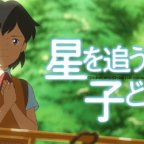Japan: Day Five – Yasukuni Shrine
We visited the infamous Yasukuni Shrine today. You know, the place that gets into the papers everytime a Japanese prime minister visits it. See pictures.
Well, it might seem like a weird place for a Chinese guy to visit, but it’s really a pretty normal tourist area. I’ve seen things like it in China before too and the displays are of course based on one’s intepretation of history… The center of propaganda in Yasukuni Shrine lies in the Yushukan, a museum of Japanese military history.
I watched a 50-minute propaganda video which concluded that Japan conducted a purely defensive war out of necessity due to the injustice done to it by the Western nations. The narrator tells the viewer that Japan’s victory in the Russo-Japanese War gave the people of the colonies hope and led to the eventual crumbling of the colonial system. A display in the museum lists Gandhi as one of those anti-colonial revolutionary, just short of crediting Imperial Japan for India’s independence. Chiang Kai-shek is credited by the movie as a great man who wanted to work with Japan for a peaceful Asia and the Chinese Communist Party supposedly destroy any hopes for peace. The movie conveniently forgets to mention Generalissimo Chiang joining sides with anti-Japan forces later. Nanjing was supposedly a city in chaos after the Nationalist government retreated until the Japanese Imperial Army saved it from anarchy (by killing everyone I guess). Manchukuo, ruled by a puppet government loyal to Japan in Manchuria, was supposedly a peaceful nation built on the principles of racial harmony between the five races. Japan unselfishly sacrificed her men and ammunitions to protect East Asia from the cruel colonial powers in exchange for just a tiny token tribute of raw materials, land, labourers and sex slaves. Such pity to those countries that could not receive the blessings of the Imperial Army because America had to be a busybody and drop the atomic bombs. Such pity.
In the documentary (I use the term in a very loose sense), a young Japanese girl onscreen says that she had never learnt about WWII in elementary school and Yushukan was the first time she learnt about WWII. Any wonders why Japanese people have such a screwed up view of the “Greater East Asian War”? A huge percentage of Japanese school children do not even know which side won the war…






June 13th, 2006 at 11:30 pm
Han ~
Unbelievable…
History is history, if you change history, it became a story…
How can they manipulate people’s opinion like that… :/
(Because of the “Honour” I suppose…)
June 13th, 2006 at 11:42 pm
History is always dictated by the winners…. except for the Japanese, who can lose so badly, yet still make it look like they were gods.
June 13th, 2006 at 11:43 pm
Japan and Germany provides such an interesting contrast, Japan has to discard the historical baggage like Germany and face the facts. By acknowledging the past and the mistakes that they committed, only can Japan progress onwards as a “full-fledged” nation. The spectre of WWII is still evident in the Constuition, one so steeped in pacifism, one would wonder whether would they follow the way of Costa Rica if they had no neighbours baying for them to accept responsibility. Japan , if they wish to fully manifest their potential that they have as a global player, will have to accept the past and forge a new future out of it. That probably would meant allowing them to create a Defence Ministry and embarking on a transition of the role of the Self Defense Forces from a defensive one to a more assertive role.
How intriguing if Tokyo and Beijing in the future would to forge an axis of power in the Far East. Old enemies becoming firm allies would be more plausible in the past but from the First World War, war now affects everyone irregardless of their social strata and background. Memories are hard to erase and like stains, the older they get, the more stubborn they are. So Japan should try to solve this issue by acknowledging the existence of their atrocities or try to convert their enemies through soft imperialism… lol.
It’s often too easy to simply place our eyes on the Chinese side, atrocities are rarely nationalised, only differentiated by the willing or the unwilling. Why is there so low coverage on atrocities done to the Japanese populace? Could it be that there are none? I am not pro-Japanese, my father was from China and I seen and heard enough of what they did to people back then yet it only made me wonder.
June 14th, 2006 at 3:29 am
How many japanese believe yasukuni’s propaganda?
Of course, a few peaple are influenced from Yasukuni,
But almost all japanese do not believe such propaganda.
I have never been in Yasukuni although I live in tokyo.
(I think I should go there, like you)
And I hate the propaganda.
So I want to ask all asian peaple.
Do you think that japan will cause war again.
I think it can’t.
Allmost all japanese hate all kind of war.
> A huge percentage of Japanese school children do not even know which side won the war
No way!
At least, Japanese schools tell them “Japan lost the war.”
I think the problem is not that schools tell wrong history or
that japanese history texts are wrong.
it is that they do not tell the detail of the war
because the detail account of the war is not fixed among all japanese even now.
(Please forgive me writing japanese because my english is too poor to describe my opinion.)
どれくらいの人が靖国神社の主張なんて信じてると思っているの?
もちろん、これに影響されて「あの戦争は正しかったんだ」なんて言っている人もいるけど
目立つだけで、少数派だってことを知った方がいい。
だって、少なくとも24年間日本で生きて来て、そんなこと言っている人と
知り合いになったことがないんだから。
韓国や中国が嫌いでも戦争が好きな人はほとんどいないし、
(その主張に微妙な違いはあれど)第二次世界大戦が正しかった戦争だと
いう人はほとんどいないでしょう。
多くの人々を殺した上に、日本人を含め多くの人を飢えさせたんだから。
基本的に多くの日本人は理由はどうあれ戦争が嫌いなんですよ。
その理由というのがアジアの人々に迷惑をかけたからと言う人もいれば、
戦争で餓死しそうだったからとか
アメリカの空襲が恐かったからと言う人もいる。
まあ、南京大虐殺があったかどうかは自分の目で見てないから分からないけど、
あってもおかしくなかったと思うし、他にも似たようなことはあったと思う。
ただ、考えて欲しいのは戦争は人を変えるということ。
彼らだって日本に帰れば良き父であり、良き夫だったわけだ。
そういうことがあったからといって日本人が本質的に残虐な人間だとは
思わないで欲しい。
> a young Japanese girl onscreen says that she had never learnt about WWII in elementary school
確かに、日本の小中学校では戦争について、もちろん教えることは教えるけど、
詳しくは教えていない。
これは高校の入学試験であまり出ないということと、大昔から始めて
江戸時代まで来ると時間が無くなってしまうこともあるけど、
本当の所は戦争についての評価がしっかりとは定まっていないからだと思う。
例えば、A級戦犯についても、東京裁判の通り彼らは犯罪者であると言う人もいれば、
東京裁判は勝者による裁判であり正当性はないが、
彼らは間違った戦争に導いた指導者であることは間違いないと言う人もいる。
つまり、細かな所も含めて公式的で統一した見解がないといってもいい状況なので、
これが一番の問題だと思います。
あと、靖国神社ごときの宣伝で日本人全員が影響されると思っているの?
日本人をバカにするなと言いたい。
June 14th, 2006 at 10:26 am
I agree with Hiroki that indeed Yasukuni shrine doesn’t represent the opinion of all Japanese people. However, China and Korea are not criticizing Japanese people; they are only criticizing Japanese Prime Minister Koizumi’s visits to the Yasukuni shrine. Of course, one may argue that Koizumi has his rights to visit any place he wants. But as a Prime Minsiter, sometimes he needs to consider the consequences of his actions. An act such as visiting Class A War Criminals probably isn’t a very good thing to do as a Prime Minister. Actually, I’m very curious to find out what do Japanese people think of Koizumi and why they elected him as their Prime Minister.
As a Chinese Canadian, I believe Japan, or at least the Japanese Government should be like Germany, apologizing for the atrocities that they have committed and recognizing history.
June 15th, 2006 at 7:26 pm
It’s not so much about how many Japanese believe in the propaganda but rather the fact that such propangada can be allowed to exist with the support of high-ranking government officials.
It’s not so much about how many Japanese believe that Japan was the victim of WWII, but the fact that so many of them do not even know the facts.
You have people who believe that Japan was the victim of WWII. These people are the ones writing WWII books in Japan.
You have some people who agree with the history studied by the rest of the world. These people keep their mouth shut or have their lives threatened by nationalistic fanatics.
And finally, you have people who do not know or care about what happened during WWII.
These people are kept sheltered from history from young.
It seems to me (from my limited obeservations) that the general conclusion many Japanese make about WWII is that war is bad, so we can safely assume that Japan isn’t going to start another war anytime soon. But this conclusion seems to come mainly from the fact that Japan itself was devastated during the war and not from an understanding about what the countries under Japanese Occupation underwent.
In an essence, Japan is mixing its own sufferings with everyone else’s and concluding that WWII wasn’t the fault of any particular country and that wars in general cause pain and suffering to everyone.
That is true in a sense, but that is not what the rest of Asia want to hear. Asia did not nuke Hiroshima. Asia was not the one that firebombed Tokyo. Asia was not the one that froze oil export to Japan. Asia was the victim of Japanese aggresssion, that is a clear and undeniable fact that Japan simply refuses to state explicitly in its literature. Japan tries to justify its actions by talking about its own suffering, and that is just bullshit. If someone stole my money, it doesn’t justify me going around robbing banks.
German cities suffered huge devastation during the war, but Germany’s suffering does not mean that the German people can deny or forget the sufferings of the Jews.
Japan’s own suffering does not justify what it did to Asia. It does not give Japan the right to forget.
Japan’s depiction of history is too morally neutral and vague and the Japanese people don’t really feel responsible for WWII. This is what pisses the rest of Asia off.
Trackback from
Zipang and WW2 | happy anime lifeSeptember 20th, 2008 at 7:36 am
[...] of The Rape of Nanking, the colourful military history of Japan as told by the war museum in Yasukuni shrine, and the history textbooks that refer to South-east Asia as nothing more than a resource node in a [...]